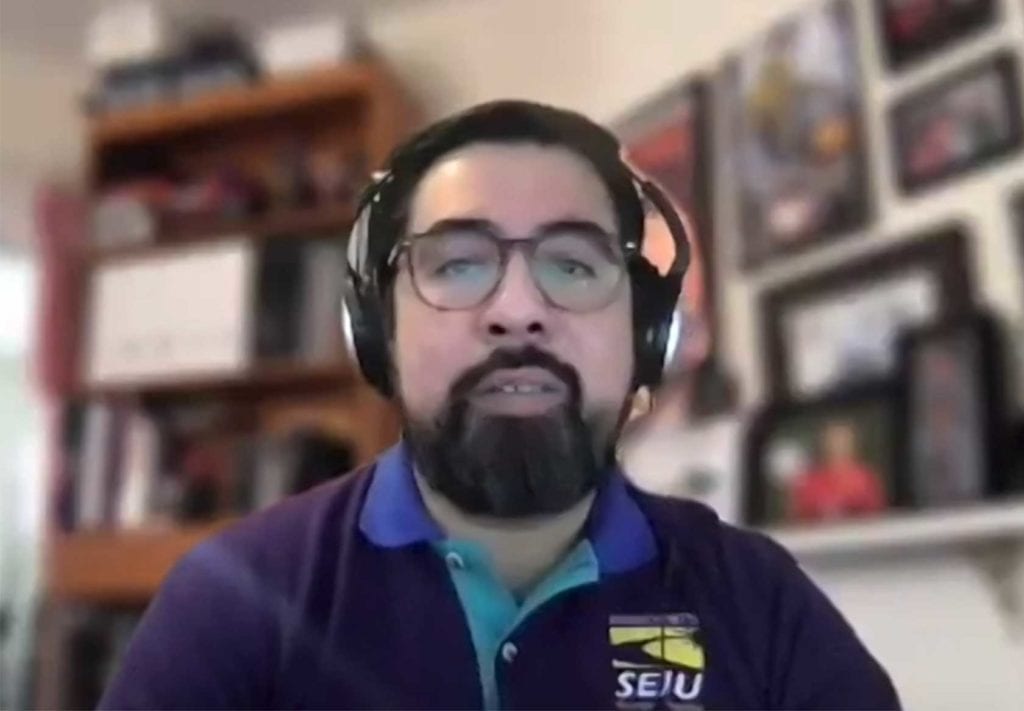Campaign underway for millionaires tax
Labor unions, community groups say measure has support of voters

Proponents of a Massachusetts constitutional amendment that would increase the tax on income over $1 million to 9% say they are ready to move forward with a campaign to garner support for the measure, which is expected to move to a statewide ballot initiative next year.
The state income tax is 5% in Massachusetts. The Fair Share Amendment, commonly referred to as the millionaires’ tax, would add an additional tax of 4% to every dollar over $1 million in annual individual income. The change would raise an estimated $2 billion in state revenue, which would be dedicated to state transportation infrastructure and pre-K-12 and public higher education.
Supporters say the measure, being advanced by the group Raise Up Massachusetts, is likely to pass at the polls, citing 73% support among voters in a recent poll and support from 147 of the state’s 200 legislators.
Yet they aren’t taking victory for granted.
“We know that some multimillionaires won’t pay their fair share without a fight,” said Pablo Ruiz, deputy director of the SEIU State Council and a member of the Raise Up Massachusetts steering committee.
Ruiz and other organizers held a press conference last week on Zoom to announce the kickoff of a campaign in support of the amendment, which must pass a vote in a legislative constitutional convention this year in order to appear on next year’s ballot.
“We’re calling on the Legislature to act one more time to put the Fair Share Amendment on the ballot and let the people vote,” Ruiz said.
The measure has the support of more than 100 nonprofit organizations and unions, including the Massachusetts Teachers Association. MTA President Merrie Najimy says the Fair Share Amendment would go a long way toward funding the Student Opportunity Act, a bill the Legislature passed in 2019 that aimed raise state spending on K-12 education by $1.5 billion over a seven-year period.
Najimy also said the amendment could help stabilize the state’s public colleges and universities.
“Public higher education has been defunded in the past 20 years,” she told the Banner.
Students of color have been particularly hard hit as tuition and fees have risen in public colleges and universities.
The MTA is calling on the state to increase funding for public colleges and universities by $136 million this year.
“We want to get adjunct professors health care and a living wage,” Najimy said. “Many of them are going to the same food pantries our students use.”
Groups opposing the measure include the Massachusetts Fiscal Alliance, the Pioneer Institute and the Massachusetts Republican Party.
Eileen McAnneny, president of the Massachusetts Taxpayers Foundation, said the proposal could drive high earners from Massachusetts to live in states that don’t tax income such as New Hampshire or Florida. She also pointed out that, as a constitutional amendment, it would be difficult to adjust the rate.
“It encodes a tax rate in the constitution, which is highly unusual,” she said. “If it needs to be amended, which we think it will, it’s very difficult to amend the constitution by design.”
After the measure voted to advance the constitutional amendment in 2019, MassGOP Chairman Jim Lyons told MassLive the measure is “a blatant cash grab masquerading as class warfare.”
Second time around
The Fair Share Amendment was first proposed in 2015 as the Massachusetts Income Tax for Education and Transportation Initiative. Utilizing a network made up largely of nonprofits and unions, Raise Up Massachusetts secured 64,750 signatures to get the question on the ballot. As is the case with constitutional amendments, the measure was required to pass the vote in two legislative constitutional conventions, and it did so.
Before the measure made it to the 2018 ballot, however, representatives of groups including Associated Industries of Massachusetts and the Taxpayers Foundation challenged the constitutionality of the measure on the grounds that it attempted to achieve two unrelated goals in a single ballot question: raising the tax rate on income over $1 million, and funding education and transportation. In June of 2018 the Supreme Judicial Court voted 5-2 that the petition violated the state constitution by combining unrelated goals, blocking the measure from appearing on the ballot.
The Fair Share Amendment was filed in the Legislature by 14th Worcester state Rep. Jim O’Day and co-sponsored by 5th Middlesex District state Sen. Jason Lewis. Because it’s not a citizens’ petition this time, it is not subject to the same constitutional restrictions barring the combining of separate goals in one measure.
During the Wednesday press conference, Lewis said he expects the measure to pass this year’s constitutional convention and pass on the ballot next year.
“The state Legislature has already voted three times with overwhelming support each time for the Fair Share Amendment,” he said. “In my conversations in recent weeks with my Senate colleagues, there continues to be very strong support and enthusiasm for this initiative.”







